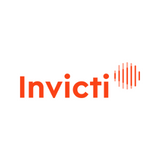The current IT market is unpredictable. If you’re new to the market, getting the attention of companies or startups becomes tough. Seasonal talent may find it hard to get a new job 💼, especially when trying to get a remote position.
There are multiple reasons behind this, including the advent of artificial intelligence models such as GPT-4 or increased competition due to market dynamics.
How do you increase your chances of getting hired? Well, you can use open source to your advantage. Open source helps you open up new opportunities and gain new skills.
In this guide, we’ll learn how you can use open source to improve your job-hunting prospects. Let’s get started.
What is Open Source Software?

“Open source” refers to anything publicly available that can modify and share its design. As we engage in technical aspects of open source, we’re more interested in “open source software.”
Hence, open source software refers to publicly available source code that anyone can modify, enhance or inspect for learning. The source code is what enables the software to work as it is intended to. However, the general user never sees the code and probably doesn’t know if it is there in the first place.
As a programmer, source code is what you’re interested in. By modifying, adding, or fixing it, you can change how the application or program behaves, aiming to make it better for the end users.
Many companies follow the open source model. This way, they enable the community to add value to the project. It also opens up the path for job hunters like you to get the chance to work on the source code.
Open Source Jobs Statistical Outlook
Before we go in-depth on how you can use open source to land a job, let’s look at a few statistics.
According to the 2022 Open Source Jobs Report, things look suitable for open source contributors. The notable stats in the report include the following:
- 86% of the managers want open source talent in their team.
- Almost 46% of the managers want to increase open source hiring.
- 93% of hiring managers find it hard to appropriate candidates with open source experience.
These stats speak volumes about how important open source jobs have become. By learning how to open source, you’re improving your chances of getting hired.
Open source jobs are the jobs that are offered by open source projects. These projects want to deploy developers well-versed with open source workflow, including tweaking, improving, or creating new functionality or software for the organization he hired.
Benefits of Open Source While Job Hunting
Open source software benefits organizations, including community-driven support, more flexible iteration, easier license management, and lower costs.
But what it has for you, especially when job hunting?
Open source contributions offer an easy way to upskill in relevant technologies with market demand.
Take Web3, for example. It is touted as the future of the internet. And you’ll find tons of unique Web3 open source projects on GitHub. If you’re interested in Web3 technologies, you can start with projects like Solidity, Truffle, Metamask, and Solana. Apart from these, you can also go for other Web3 projects that you find interesting. Similarly, you can find open source projects related to other technologies.
Once you start contributing, open source project managers will notice you. As they’re behind the project management, they can also see how your code changes impacted the project. Also, they’ll notice how quickly you learn without their help, i.e., your ability to learn things with minimal guidance.
If you’re not into coding, you can also contribute differently. For instance, you can check out these projects’ technical documentation if you like writing. You can also contribute through blogs, helping the company you want to get hired to see your skills.
The most significant benefit of open source contributions is remote positions. Remote work became very popular during the pandemic; however, with everything settled, companies moved to offices. As the nature of open source projects is primarily remote, you have higher chances of getting a remote job with this approach. You also get the benefit of better earnings and diverse opportunities.
Applying or Getting Invited
Amazing! You started to contribute to open source projects. From here, you have different ways to get noticed.
➡️ Keep contributing until someone from the project team contacts you for a potential interview.
➡️ Apply to the open job positions listed by the company. When applying, make sure that you mention your contributions explicitly so they know what you can do for them.
➡️ Lastly, if there are no open job positions, contact them through email, social media, or any other medium you find fit.
If your contributions are exceptional, you’ll catch the attention of the developers instantly. They see your passion for the project and the ability to make sweeping changes with minimal help. Also, if your impact is similar to a full-time developer or better, the chances of you getting hired increase manifold. In these cases, they contact you and try to get you onboard.
Harikirat Singh, A YouTuber and open source contributor, got his job by following this method. He wanted to join Backpack, a Web3 company recently raising heavy investment. However, he wasn’t getting any leads to join them.
However, Harikirat got his chance when Backpack went from closed to open source. He started contributing to the project. With a few contributions down the road, Amrani Ferrante, the CEO of Backpack, noticed him. Amrani contacted Harkirat, and after a small talk, he gave Harikirat a remote working contract. To learn more about it, check out his story here.
Another case study you can read is by Josh Wulf; you choose the open source path to advance his career.
How to Contribute to Open Source?
Contributing to open source doesn’t require any specialized skills. However, it does require understanding a few concepts and platforms.
The first step is to learn the GitHub platform. For that, you need to create a GitHub account. Here, you’ll find tons of open source projects. Initially, you can start the repositories that you find interesting.

Next, you’ll need to learn how an open source project work. Its key elements include:
✅ Open source anatomy includes the project’s main authors, maintainers, owners, contributors, and community members.
✅ Learn about project license types.
✅ Any open source project contains a README file which you must read to know the project. It generally includes instructions for the end users, but you can also find helpful information as a contributor. Many open source projects also have a CONTRIBUTING file dedicated to contributors engaging in the project. The CONTRIBUTING file lists the steps needed to start contributing to the project.
✅ Lastly, check out the CODE_OF_CONDUCT offering critical points on the project’s participants’ behavior.
Apart from these, check out the project documentation. It’ll give you access to walkthroughs, tutorials, and other guides.
You must also learn key open source concepts, including Issue Tracker, Pull Requests, Mailing Lists or Discussion Forums, and Synchronous chat channels.
Once you’re familiar with all of the above, you now need to find a project that you’re passionate about. Preferably, it must be for the company you want hired for. However, that may only sometimes be the case. Many open source projects can catch your attention. If any open source project does, go ahead and contribute to it.
You may also want to filter projects based on the technology you want to work on, the projects you feel will have a considerable impact. There’re many ways you can search for open source projects. These include GitHub Explore, First Timers Only, Open Source Friday, etc.
Key Skills You Learn When Making Open Source Contributions
There are many skills that you learn when making open source contributions. These include:
- Improve existing skills: When you start contributing, you learn much more. This improves existing skills, whether technical writing, coding, or specific technical skills.
- Improve your networking skills: Open source allows you to work with diverse people. It also gives you networking options as you meet interesting people with similar interests.
- Sharing knowledge: With open source, you learn and teach others. Once you become experienced, you can guide others mentoring them on how to succeed with open source.
- Learn people skills: Interacting with communities teaches you diverse skills such as management, conflict resolution, etc.
Final Words
Contributing to open source is one of the best ways to get noticed. Does it lead to getting hired? Well, it does. However, it may be different for everyone out there.
The best approach is to see this as opening new networking opportunities that can lead to interviews or chats. Now, it is up to you how to convert this networking into contracts or full-time jobs.
After making a few contributions, you’ll also feel confident. So, don’t stop contributing; you’ll soon land your dream job. And you also make the world a better place!
Ultimately, you’ll have a competitive edge over people who don’t make open source contributions. It teaches you key skills, both technical and interpersonal skills. You also learn to collaborate with strangers and work in agile environments, where changes happen quickly.
Next, check out tips for hiring a WordPress developer for your business.

















